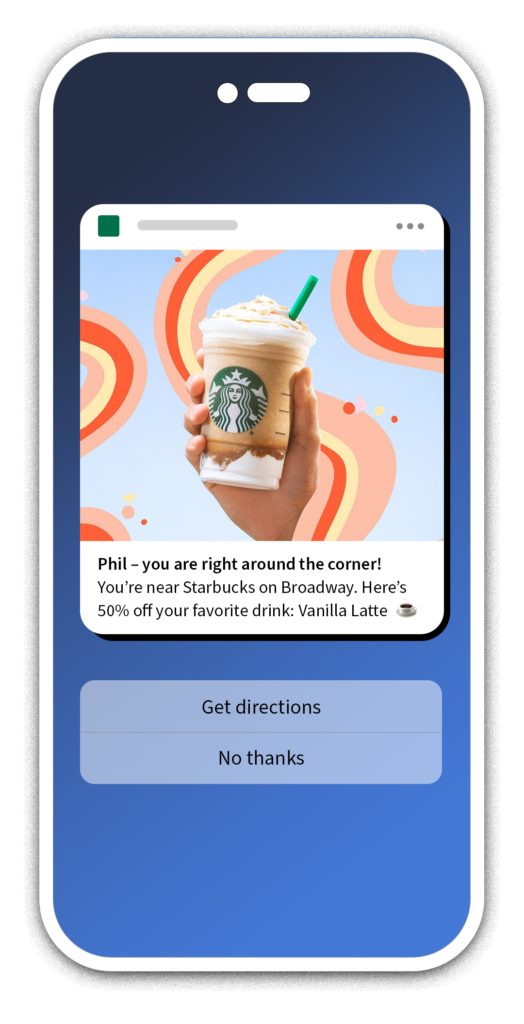Remember when adding marketing personalization to a campaign simply meant adding someone’s first name or company name to your subject line?
These days it applies to every level of your customers’ journey, on every channel. It shows that your brand knows them and cares enough about their business to cater to their needs.
In MessageGear’s recent survey on consumer expectations, half of respondents said they feel annoyed when brands send generic messages. A whopping 75%+ said they will unsubscribe from brands that send too many irrelevant messages.
At the same time, though, two-thirds of respondents said brands that create a personalized customer experience are more likely to get their business. So how do you give customers what they want in an increasingly cluttered landscape?
Let’s break down some actionable ways you can make sure you’re using marketing personalization the right way for your brand.
Connect across channels
In the B2C world people use multiple channels to browse, shop, and interact. It’s pretty common for customers to start off on one track and finish it on another, maybe stopping and switching devices or channels along the way.
In fact, about 73% of shoppers report using multiple channels when making a purchase.
Just last week I purchased a new media console for our family room. I had been browsing options on my phone and later opened an email from the brand I was considering on my laptop.
Then, a few days later I finally made the purchase from my phone after mulling over the purchase and talking about it with my partner. After the purchase I signed up for SMS notifications, and I’ve been watching the status of my order through text notifications ever since.

Thanks to all this channel-crossing, applying personalization based on an integrated customer view across all channels is key. What’s also key, though, is tailoring those messages to the channel where you’re sending them.
While customers may want instant notifications about the shipping status of their purchases or notifications that out of stock products are back on the shelves, the same can’t be said for that sale that just started or that new product you’re so excited to share the news about.
Those types of notifications are often more readily accepted through channels like email that customers can check when they’re ready.
Focus on micro-segmented messaging
By taking your customer base and dividing them into smaller groups, your brand is more easily able to create targeted marketing campaigns that convert at a higher rate.
Segmentation can be broken down into as many different characteristics as your brand would like. Some common buckets include:
- Behavioral data: How do customers interact with your product or service?
- Demographic data: Basic information about your customer base like their location or income.
- Psychographic data: Information about your customer’s lifestyle, values, and personality.
Micro-segmentation takes things further, grouping customers into even smaller buckets by studying more concentrated behavioral patterns or predictions.
Going back to my media console example, the brand I purchased from may decide in the future to market to women between the ages of 30-40 who have purchased living room furniture in the past in a walnut stain.
The process of micro-segmentation helps you understand customers better, allowing you to give them exactly what they need and want – in my case, maybe a coordinating end table for my family room.
Offer localized content
 We hear all the time that the differentiator when it comes to marketing personalization is relevance. Local content is perhaps the best way to infuse more relevance into your communications.
We hear all the time that the differentiator when it comes to marketing personalization is relevance. Local content is perhaps the best way to infuse more relevance into your communications.
Marketing at the enterprise level can only do so much to understand what’s happening on the ground in individual cities — and at each location within that city. Allowing a local owner or franchisee the freedom to do email marketing with their own localized spin can help build loyalty and a better customer connection.
While it can be scary for a large brand to put that sort of ownership into distributed hands, it can work well when done right. For example, Culver’s marketing team wanted to empower their local marketers to use their own customer data and help drive personalized email marketing.
Using MessageGears and SageFlo allows Culver’s corporate marketing teams to create multiple templates, while the local level chooses an approved template and can send messages in minutes. This feature makes the message feel personalized while conforming with overall company brand guidelines.
Without direct data access, it can be challenging to execute this type of approach. Teams run into delays with being able to distribute audiences to local marketers, and template adjustments and overall integrations can be tricky. Direct data access makes all this simple, allowing the data to flow easily into a single source of truth for all locations. This enables teams to share information live and in real time.
Act in real time
The common thread in executing on the type of marketing personalization that truly sets brands apart is real time connection to your data.
Harvard Business Review Analytic Services reports that 58 percent of business leaders around the world say they’ve seen marked increases in customer retention as a result of real-time data analytics.

Real time marketing personalization can help every channel of communication, including email, SMS, push notifications, in-app, OTT, landing pages, and even direct mail. The goal is to produce a web of connections based on interactions you have with your customer on your website, app, or via email.
Access to data is a huge factor when it comes to connecting with customers in real time. While businesses may have billions of data points on customers, there’s no benefit if they can’t access that data in real time.
Communicating with customers across OTT platforms is a newer way for brands to connect with audiences. With digital TV streaming on the rise in app messages on platforms like Apple TV, Android TV, Roku, Fire TV, Samsung, or LG are a great way to reach viewers with personally relevant content.
For instance, a major big box retailer recently came to MessageGears with the goal of better data access. MessageGears provided immediate connectivity between Movable Ink and their data, allowing for more efficient and effective use of the customer information they’ve expended resources collecting.
The retailer can now utilize any and all of their data for personalization throughout the content of an email campaign, live and in real time via Movable Ink and MessageGears Engage. The retailer’s customers benefit from access to inventory and pricing updates that are live and up to the minute, improving their experience.
Relevance above all
As technology has evolved, customer expectations for personalization in marketing have changed with it.
While the playing field may seem stacked against marketers, time and time again we hear that the brands getting the best results focus on relevance over everything else.
If the channel you’re using to speak with customers serves the types of messages they expect to receive on that channel, your messages are more likely to connect. Likewise, the deeper your segmentation and the more local and real time you can get, the more likely you are to stand out in a crowded market.
Learn more about how MessageGears can help improve your access to data – and your ability to personalize your marketing messages.





